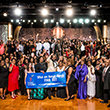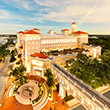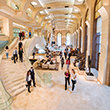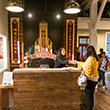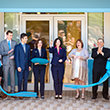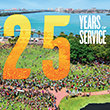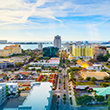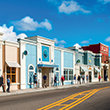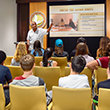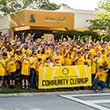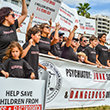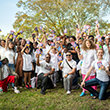
Finding effective—but often elusive—solutions for civic success is a holy grail among dedicated activists. They know that “building community” is possible—but it’s always so confoundingly difficult.
What are the ingredients necessary to build a great community? Let’s look at Clearwater, Florida, where the Clearwater edition of Freedom is based and where the magazine’s parent, the Church of Scientology, has its international spiritual headquarters. That’s a big plus absent in many cities. Clearwater boasts the home of a worldwide religion, and the gravity that brings to the city—from beautiful buildings to problem-solving humanitarian endeavors—it gives the community tremendous potential advantages. Put another way, Scientology offers Clearwater a door to major, positive global actions via a religion that fights every day for human rights, moral decency and an end to scourges such as illiteracy, drugs and psychiatric abuse.
And with those advantages come people—talented, entrepreneurial and industrious people flock to Clearwater from across the globe. Over 10,000 Scientologists live in the Greater Clearwater area and thousands of others visit at any one time from around the world.
Even more important, Scientologists roll up their sleeves, wipe their brows, and tackle the hard work of making Clearwater a great place to live, work, create, study and play. In doing so, they work alongside nonprofits that can greatly assist the standard of living in their community. The Church has directly supported many of these charitable activities and three years ago formed a coalition—now some 200 strong—of like-minded organizations tackling the most troubling aspects of our society. The Church is committed to adding its strength to the ranks of this dedicated core of people who do good.
At a time when the media are more fixated on titillating readers with crime and sensationalism, and ramping up bigotry against minorities, reporters seem reluctant to show the path to better communities. It’s time to report those good works. “Good community” is the theme for this issue of Freedom.
There’s even good news about the good news. In March 2018, the Scientology Network was launched. Two new episodes on the network explore the Scientology headquarters in Clearwater and the local Church in Tampa. Get a preview in this magazine.
Things that might greatly improve the nonprofits—and the community—include collaboration, networking and idea-sharing.
For years, local Scientologists have been involved in worthy civic endeavors—from child-oriented holiday events, to spreading the word about the dangers of drugs, to tackling disasters.
What was lacking was a physical presence—headquarters, offices, command centers. Scientology ecclesiastical leader David Miscavige saw that need—and the opportunity—and in 2015 the Church opened a half-dozen headquarters along North Fort Harrison Avenue.
Mr. Miscavige said at the opening of those headquarters: “As Scientology expands out across the world, in our wake we bring our solutions to those in desperate need. We have established international footholds to address drug abuse, illiteracy, immorality and human rights. We have worked in the hot spots of the world—the major cities of Earth.
“We now bring the full breadth of our programs to this city,” Mr. Miscavige continued, “the city in which we live, the city that is our home—Clearwater, Florida.”
Those headquarters are all branches of international organizations supported by the Church—Citizens Commission on Human Rights, United for Human Rights, Volunteer Ministers, Foundation for a Drug-Free World, The Way to Happiness Foundation and Criminon.
But one local band of Scientologists and allies, the Clearwater Community Volunteers (CCV), still lacked a building anchor for its many, many public service events and crusades. That was remedied in March, with the opening of the CCV headquarters on Fort Harrison Avenue, along what might now be called “Great Community Boulevard.”
Not only that, it serves as a home base for nonprofit groups in the Tampa Bay area working to do good but with inadequate facilities. Things that might greatly improve the nonprofits—and the community—include collaboration, networking and idea-sharing. Those groups now have access to the facilities at CCV’s new headquarters, with the hope that their work will be turbocharged.
As Mr. Miscavige has said: “We do not discriminate. We do not judge. All we care to do is help. And, as demonstrated time and again, we deliver that help anywhere and everywhere.”
Freedom is uncovering problems in the community, and illustrating solutions for building a great society. Read on and enjoy!


